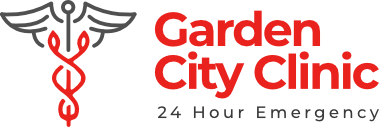The third trimester of pregnancy is an exciting and crucial time for expectant mothers. As you approach the final stages of pregnancy, your body undergoes significant changes in preparation for childbirth. In this guide, we will explore the key points to expect during the third trimester, including physical and emotional changes, fetal development, prenatal care, and helpful tips to ensure a smooth transition into motherhood.

Introduction
The third trimester is a remarkable period characterized by the final growth and development of your baby before birth. It usually starts around week 28 and lasts until the delivery, which typically occurs between weeks 37 and 40. During this time, both you and your baby undergo significant changes as you prepare to welcome your little one into the world.
Physical Changes
As your baby continues to grow, you will experience various physical changes in your body. These changes may include weight gain, an expanding belly, stretch marks, backaches, swollen ankles, and increased fatigue. It’s important to listen to your body and prioritize self-care to stay comfortable during this time.
Emotional Changes
The third trimester can bring about a range of emotions. Hormonal fluctuations, anxiety about labor and delivery, and anticipation of becoming a parent may contribute to mood swings, heightened sensitivity, and increased nesting instincts. It’s crucial to communicate your feelings with your partner, friends, or healthcare provider to ensure emotional well-being.
Fetal Development
By the third trimester, your baby has developed all major organs and systems. During this stage, their main focus is on gaining weight and maturing their lungs. You may experience your baby’s movements more prominently, and they will continue to grow rapidly. Regular prenatal check-ups and ultrasounds will monitor your baby’s growth and position.
Prenatal Care
Prenatal care remains essential during the third trimester. Regular visits to your healthcare provider will include monitoring your blood pressure, measuring your belly, checking your baby’s heartbeat, and discussing any concerns or questions you may have. It’s vital to attend all scheduled appointments and follow your healthcare provider’s recommendations.
Diet and Exercise
Maintaining a healthy diet and incorporating gentle exercise can benefit both you and your baby. Focus on consuming nutrient-rich foods, staying hydrated, and avoiding excessive weight gain. Consult your healthcare provider for specific dietary guidelines and safe exercises suitable for the third trimester.
Common Discomforts and Remedies
During the third trimester, you may experience discomforts such as heartburn, frequent urination, swelling, and difficulty sleeping. To alleviate these discomforts, try eating smaller meals, avoiding spicy foods, elevating your legs, using pregnancy pillows, and establishing a relaxing bedtime routine.
Sleep and Rest
Getting enough rest and sleep is crucial during the third trimester. As your body works hard to support your baby’s growth, you may find it challenging to get comfortable and sleep well. Create a conducive sleep environment, practice relaxation techniques, and consider using supportive pillows to enhance your comfort and sleep quality.
Nesting and Baby Preparation
Nesting instincts often kick in during the third trimester. This is the perfect time to prepare your home for the arrival of your baby. Set up the nursery, wash and organize baby clothes, assemble furniture, and ensure you have all the essential supplies. Creating a cozy and welcoming space will help you feel prepared and excited for your baby’s arrival.
Bonding with Your Baby
During the third trimester, you can begin establishing a bond with your baby. Talk, sing, and read to your baby to promote their cognitive development and create a connection. Gentle belly massages and playing soothing music can also enhance the bonding experience.
Hospital Bag Essentials
Preparing a well-packed hospital bag is crucial for a smooth hospital stay. Include essential items such as comfortable clothing, toiletries, nursing bras, sanitary pads, baby clothing, and important documents. Packing your bag in advance will ensure you are ready when the time comes.
Conclusion
The third trimester is an exciting and transformative time in your pregnancy journey. By understanding the physical and emotional changes, staying proactive with prenatal care, and preparing for childbirth and motherhood, you can navigate this stage with confidence and joy. Remember to listen to your body, seek support when needed, and embrace the anticipation of meeting your precious baby.
FAQs (Frequently Asked Questions)
Q: Is it normal to feel increased fatigue during the third trimester?
A: Yes, it is common to experience increased fatigue as your body works hard to support your baby’s growth. Be sure to rest and prioritize self-care.
Q: How can I relieve swollen ankles in the third trimester?
A: Elevating your legs, avoiding prolonged standing or sitting, and wearing supportive footwear can help reduce swelling in the ankles.
Q: Can I still exercise during the third trimester?
A: Gentle exercises like walking, swimming, and prenatal yoga are generally safe during the third trimester. Consult your healthcare provider for personalized recommendations.
Q: When should I pack my hospital bag?
A: It’s a good idea to pack your hospital bag by the beginning of the third trimester. This ensures you are prepared for unexpected early labor.
Q: How can I manage stress and anxiety during the third trimester?
A: Engaging in relaxation techniques, seeking support from loved ones, and practicing self-care activities can help manage stress and anxiety effectively.

